Your cart is currently empty!
Tag: Legalities
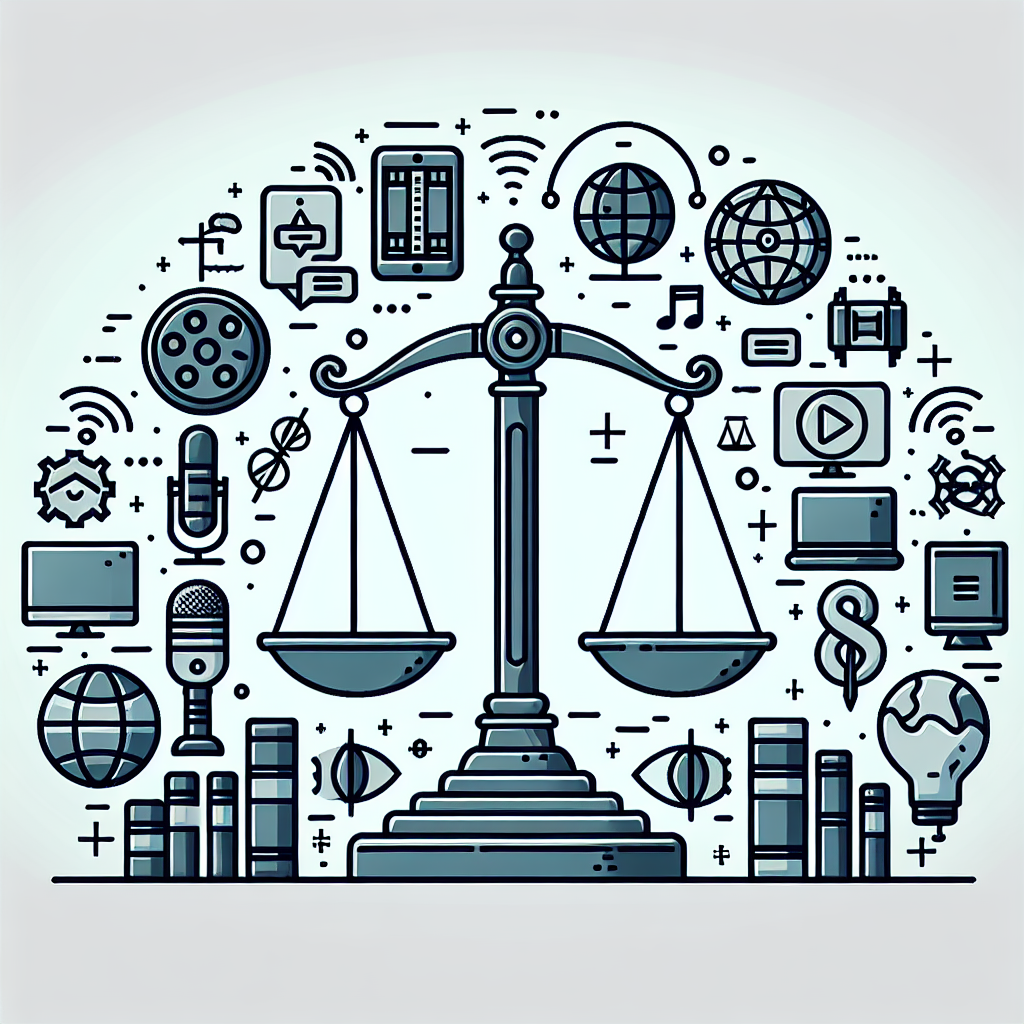
The Legalities of IPTV: Understanding Copyright Laws and Streaming Regulations
IPTV, or Internet Protocol Television, has become increasingly popular in recent years as a way to stream TV shows, movies, and other content over the internet. However, with this rise in popularity comes a host of legal issues surrounding copyright laws and streaming regulations.One of the key legal considerations when it comes to IPTV is copyright infringement. Copyright laws protect the rights of content creators and owners to control how their work is used and distributed. When you stream content through an IPTV service without the proper authorization, you could be infringing on someone else’s copyright.
In many cases, IPTV services offer access to copyrighted content without obtaining the necessary licenses or permissions from the content creators. This can lead to legal action being taken against both the IPTV service provider and the individual users who are streaming the content.
To avoid copyright infringement when using IPTV, it’s important to only access content that has been properly licensed and authorized for streaming. This means sticking to legitimate IPTV services that have agreements in place with content creators and distributors.
Another legal consideration when it comes to IPTV is streaming regulations. In some countries, there are laws and regulations in place that govern how content can be streamed over the internet. These regulations can vary widely from one jurisdiction to another, so it’s important to familiarize yourself with the laws in your area.
For example, some countries have laws that restrict access to certain types of content, such as adult content or content that promotes hate speech. If you are using an IPTV service to stream content that falls into these categories, you could be in violation of local laws and face legal consequences.
In addition to copyright laws and streaming regulations, there are also privacy concerns to consider when using IPTV. Some IPTV services may collect and store personal information about their users, such as their viewing habits and preferences. It’s important to read the terms of service and privacy policy of any IPTV service you use to understand how your information is being collected and used.
In conclusion, when using IPTV it’s important to be aware of the legalities surrounding copyright laws, streaming regulations, and privacy concerns. By sticking to legitimate IPTV services and being mindful of the laws in your area, you can enjoy streaming your favorite content without running afoul of the law.
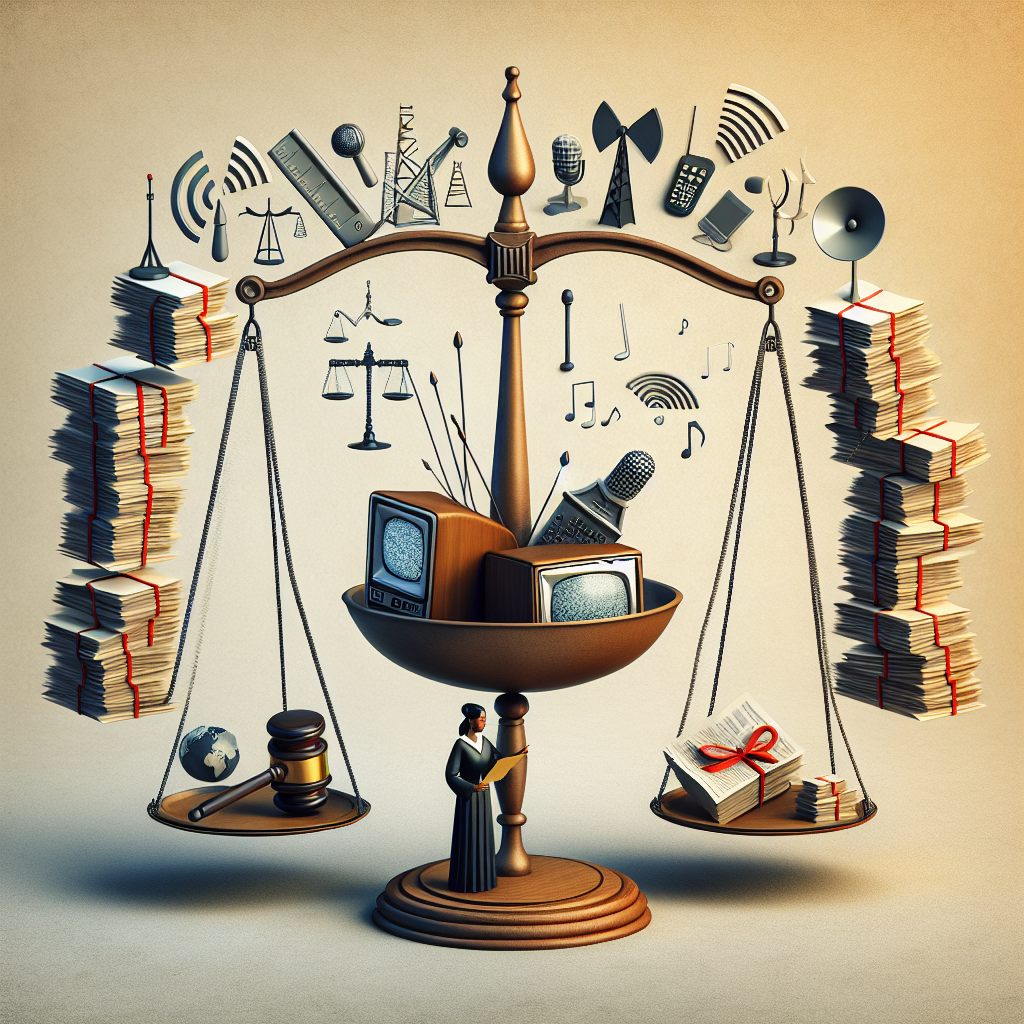
The Legalities and Copyright Issues Surrounding IPTV
IPTV, or Internet Protocol Television, is a technology that allows users to stream television content over the internet rather than through traditional cable or satellite providers. While IPTV offers many advantages, such as access to a wider range of channels and on-demand content, there are also legal and copyright issues that users need to be aware of.One of the main legal issues surrounding IPTV is the unauthorized streaming of copyrighted content. Many IPTV providers offer access to premium channels and movies without the proper licensing agreements, which is illegal and can result in legal action being taken against both the provider and the user. Additionally, downloading or streaming copyrighted content without permission is a violation of copyright law and can result in hefty fines or even criminal charges.
Another legal concern with IPTV is the use of illegal streaming devices, such as Kodi boxes or jailbroken Firesticks. These devices often come pre-loaded with apps and add-ons that allow users to access copyrighted content without paying for it. While these devices may seem like a cost-effective way to access premium content, using them is illegal and can result in serious consequences.
In order to avoid legal issues when using IPTV, it is important to make sure you are using a legitimate service that has the proper licensing agreements in place. This means subscribing to a reputable IPTV provider that offers access to content legally and ethically. Additionally, users should be cautious of any offers that seem too good to be true, such as free access to premium channels or movies, as these are likely illegal.
It is also important to be aware of the copyright laws in your country and to ensure that you are not violating them when using IPTV. This means refraining from downloading or streaming copyrighted content without permission and being cautious of the sources you are using to access content.
In conclusion, while IPTV offers many benefits, it is important for users to be aware of the legalities and copyright issues surrounding the technology. By using legitimate services and being cautious of the content they are accessing, users can enjoy IPTV without running into legal trouble. Remember, when it comes to IPTV, it is always better to be safe than sorry.
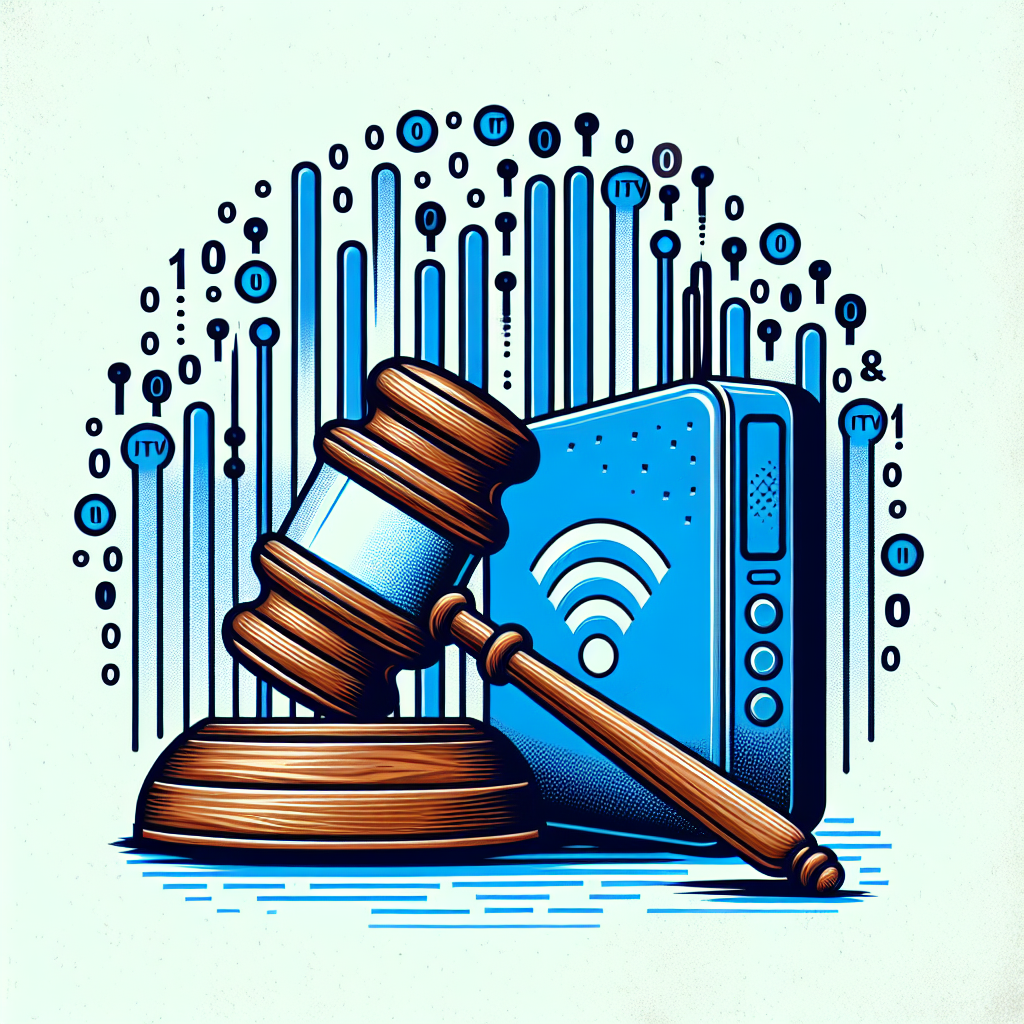
The Legalities of IPTV: Understanding Copyright and Licensing Issues in the World of Internet Television
Internet Protocol Television (IPTV) has become a popular way for people to access television content over the internet. With the rise of streaming services such as Netflix, Hulu, and Amazon Prime Video, more and more people are turning to IPTV as a way to watch their favorite shows and movies. However, with this increase in popularity comes a number of legal issues that users and providers need to be aware of.One of the main legal issues surrounding IPTV is copyright infringement. Copyright law protects the rights of content creators by giving them the exclusive right to reproduce, distribute, and display their work. This means that if you are streaming or downloading copyrighted content without permission, you are likely infringing on the rights of the copyright holder.
In the world of IPTV, this can be a particularly tricky issue. Many IPTV services offer access to a wide range of channels and content from around the world, much of which may be protected by copyright. This means that users need to be careful when using IPTV services to ensure that they are not infringing on the rights of content creators.
Another legal issue that users and providers need to be aware of is licensing. In order to legally distribute television content, IPTV providers need to have the proper licenses in place. This means that they need to obtain permission from the copyright holders of the content they are distributing in order to avoid legal action.
Failure to obtain the proper licenses can result in serious consequences for IPTV providers, including fines and even criminal charges. This is why it is important for users to only use reputable IPTV services that have the proper licensing in place.
In conclusion, the legalities of IPTV are complex and ever-evolving. Users and providers need to be aware of the copyright and licensing issues surrounding IPTV in order to avoid legal trouble. By using reputable IPTV services and being mindful of copyright laws, users can enjoy the benefits of internet television without running afoul of the law.
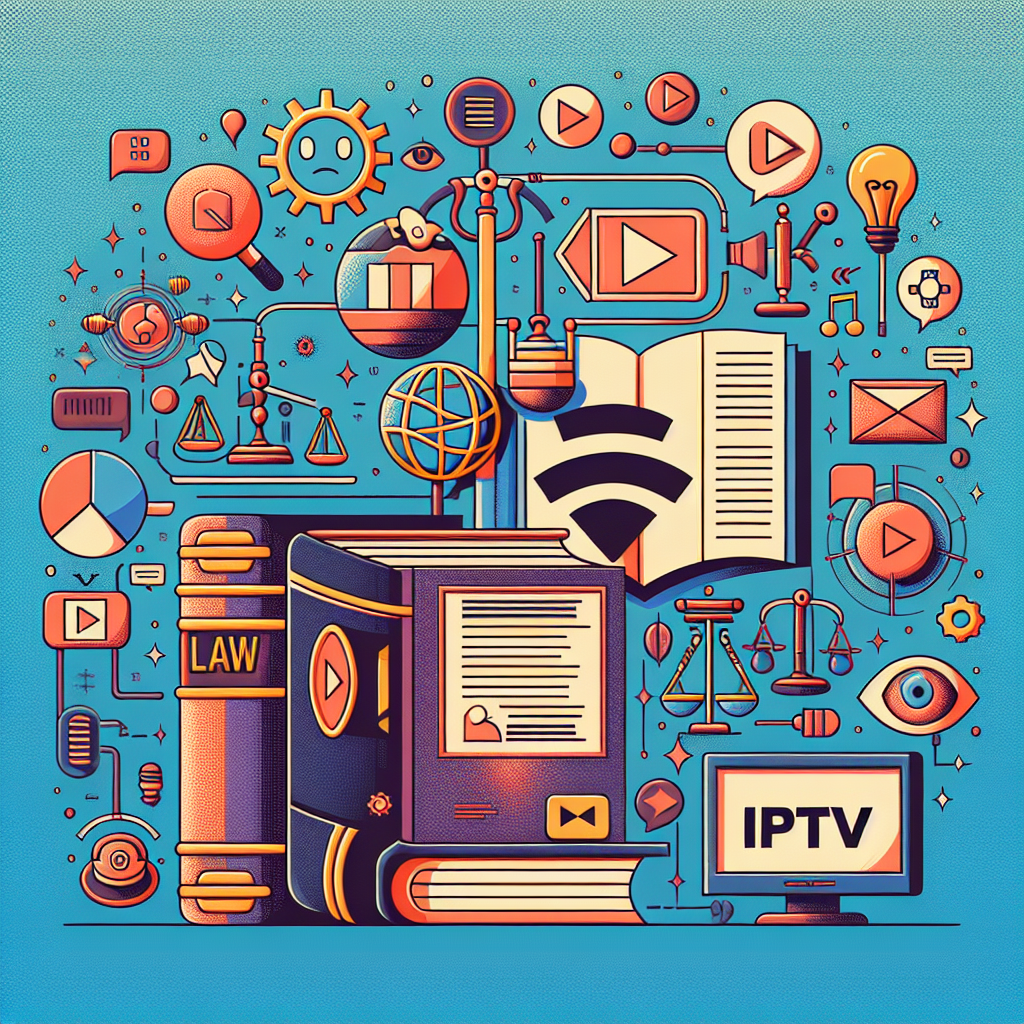
The Legalities of IPTV: Understanding Copyright Laws and Streaming Services
IPTV, or Internet Protocol Television, has become increasingly popular in recent years as a way to access a wide range of television channels and on-demand content over the internet. However, the legalities surrounding IPTV can be complex, particularly when it comes to copyright laws and streaming services.Copyright laws protect the rights of content creators, such as television networks and production companies, by giving them exclusive rights to reproduce, distribute, and perform their work. This means that anyone who wants to broadcast or stream copyrighted content must obtain the proper licenses and permissions from the copyright holders.
When it comes to IPTV, many providers offer access to live television channels and on-demand content without obtaining the necessary licenses. This can lead to copyright infringement, which is illegal and can result in legal action being taken against the provider.
To avoid copyright infringement, it is important for IPTV providers to ensure that they have the proper licenses in place to broadcast or stream copyrighted content. This may involve negotiating agreements with individual content creators or obtaining licenses from organizations that represent multiple copyright holders, such as performing rights organizations.
In addition to copyright laws, IPTV providers must also comply with other legal requirements, such as data protection laws and regulations governing the use of electronic communications. Failure to comply with these laws can result in fines and other penalties.
Furthermore, consumers who use IPTV services should also be aware of the legalities surrounding streaming content. While it is generally legal to stream content for personal use, streaming copyrighted content without permission is illegal. This includes using IPTV services that offer access to pirated or unauthorized content.
In conclusion, understanding the legalities of IPTV is essential for both providers and consumers. By ensuring that they have the proper licenses and permissions in place, IPTV providers can avoid copyright infringement and other legal issues. Likewise, consumers should be wary of using IPTV services that offer unauthorized content to avoid legal repercussions. Ultimately, respecting copyright laws and regulations is crucial for the continued growth and success of the IPTV industry.
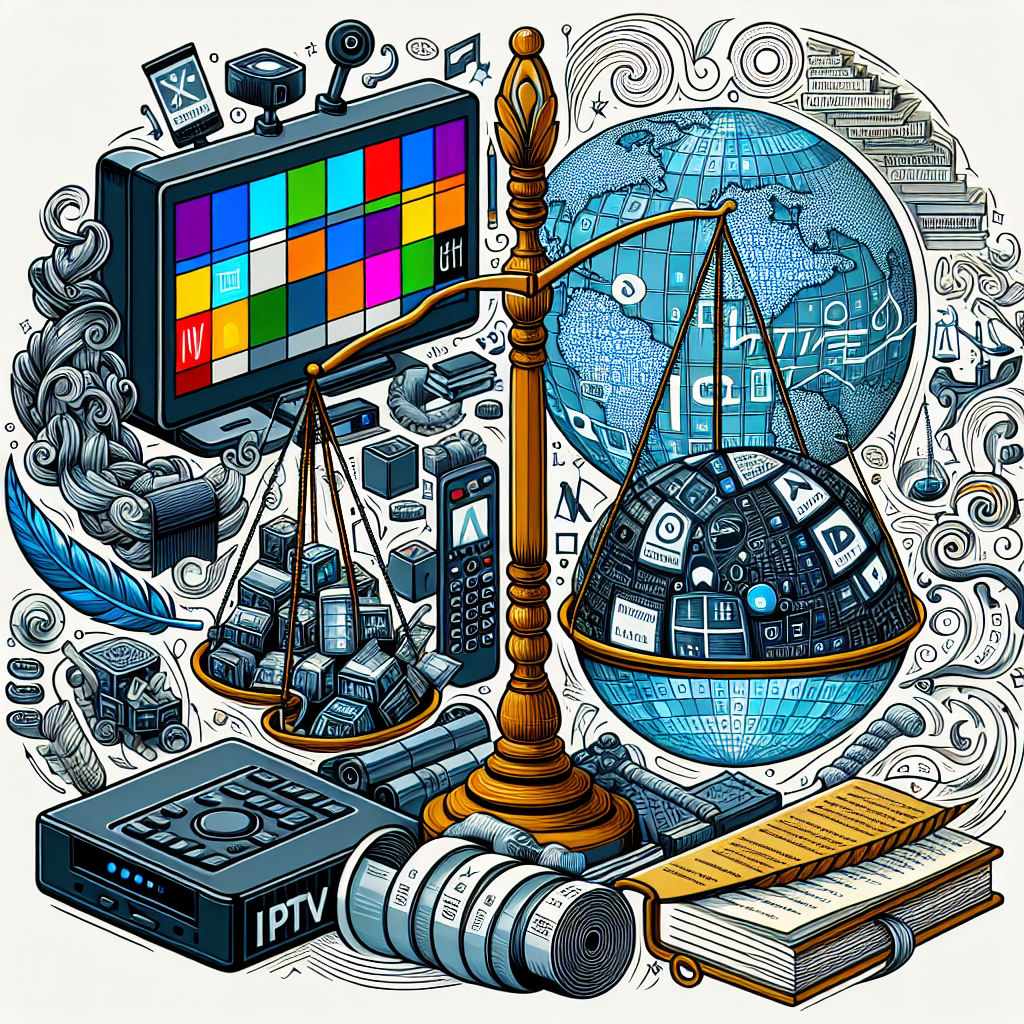
The Legalities of IPTV: What You Need to Know
IPTV, or Internet Protocol Television, is a popular way for people to access television programming through their internet connection rather than traditional cable or satellite services. While IPTV offers many advantages, such as a wider range of channels and on-demand programming, there are also legal considerations that users need to be aware of.One of the main legal issues surrounding IPTV is copyright infringement. When users access content through IPTV services, they may be streaming copyrighted material without the proper licensing or permissions. This can result in legal action being taken against both the service provider and the user. In some cases, users may receive cease and desist letters or face fines or even criminal charges for illegal streaming.
Another legal concern with IPTV is the use of unauthorized streaming devices or apps. Some IPTV services may offer access to channels or content that they do not have the rights to distribute. Using these services can also put users at risk of legal consequences, as they may be unknowingly participating in copyright infringement.
It is important for users to be aware of the legal implications of using IPTV services and to make sure they are accessing content through legitimate and licensed providers. This can help protect them from legal issues and ensure that they are not unknowingly supporting piracy.
Additionally, users should be cautious when purchasing IPTV services or devices from unknown or unreliable sources. It is important to do research and make sure that the service provider is reputable and compliant with copyright laws. Users should also be wary of offers that seem too good to be true, as they may be illegal services that could put them at risk.
In conclusion, while IPTV offers many benefits for users, it is important to be aware of the legalities surrounding its use. By using licensed and legitimate providers, users can enjoy their favorite programming without the risk of legal consequences. Being informed and making responsible choices when it comes to IPTV can help protect both users and content creators.
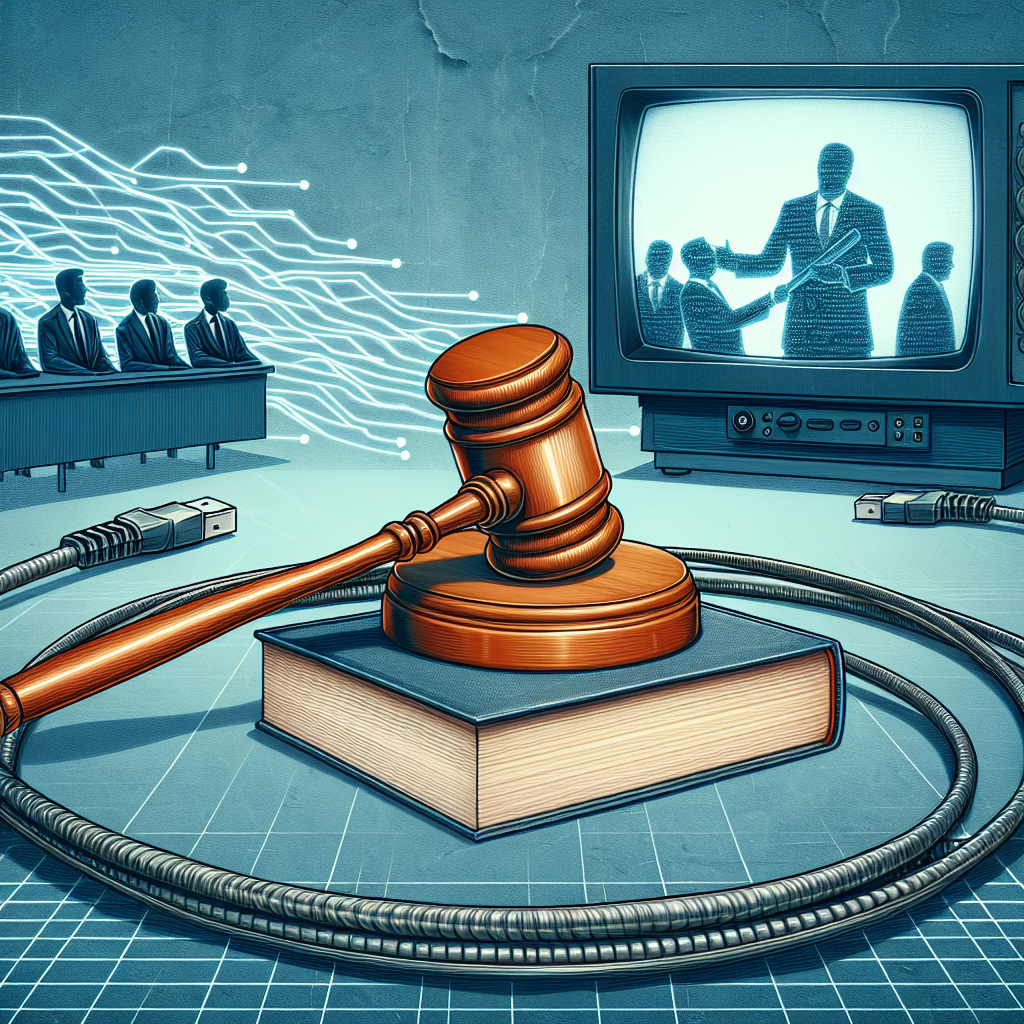
The Legalities of IPTV: What You Need to Know Before Cutting the Cord
Over the past few years, IPTV (Internet Protocol Television) has gained popularity as an alternative to traditional cable and satellite television services. IPTV allows users to stream live TV channels and on-demand content over the internet, often at a lower cost than traditional providers. However, before you make the decision to cut the cord and switch to IPTV, it’s important to understand the legalities surrounding this technology.One of the biggest concerns with IPTV is the issue of piracy. Some IPTV services offer access to copyrighted content without proper licensing or permission from the content owners. This can result in legal repercussions for both the providers and users of these services. It’s important to do your research and make sure that the IPTV service you choose is operating legally and has the necessary licensing agreements in place.
Another legal issue to consider is the use of VPNs (Virtual Private Networks) with IPTV services. Some users may use VPNs to access geo-blocked content or to protect their privacy while streaming. However, using a VPN to circumvent geographical restrictions or to access content without proper licensing can also be illegal. It’s important to understand the laws surrounding VPN usage in your country and to use them responsibly.
Additionally, it’s important to be aware of the potential risks associated with using IPTV services. Some providers may offer unreliable service or may be involved in illegal activities, such as selling user data or engaging in fraud. Before signing up for an IPTV service, make sure to read reviews and do your due diligence to ensure that the provider is reputable and trustworthy.
In conclusion, while IPTV can offer a convenient and cost-effective way to access television content, it’s important to be aware of the legalities surrounding this technology. Make sure to choose a reputable IPTV provider that operates legally and has the necessary licensing agreements in place. Additionally, be mindful of the risks associated with using VPNs and make sure to use them responsibly. By staying informed and making responsible choices, you can enjoy the benefits of IPTV while staying on the right side of the law.
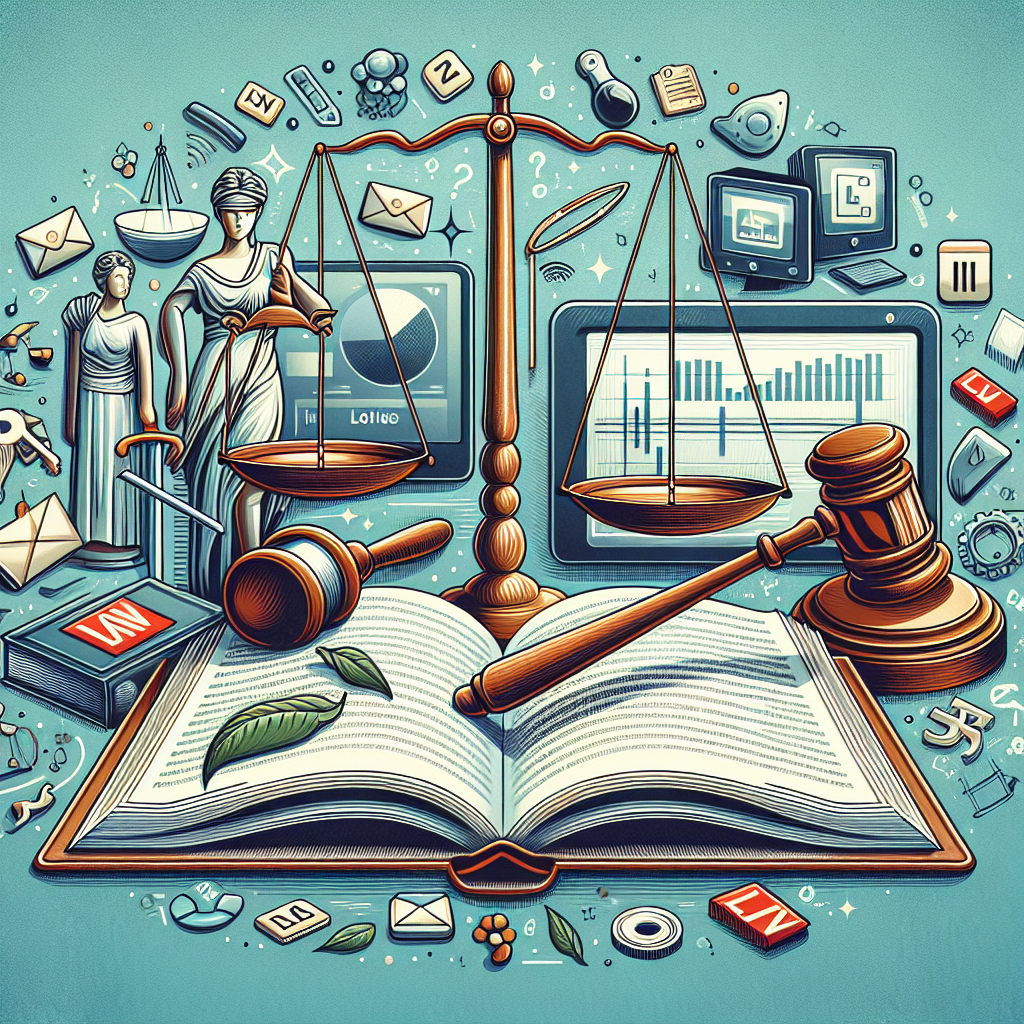
The Legalities of IPTV: What You Need to Know Before Subscribing
IPTV, or Internet Protocol Television, is a popular way to stream television content over the internet. With the rise of streaming services like Netflix and Hulu, many people are turning to IPTV as a way to access their favorite shows and movies. However, before you subscribe to an IPTV service, it’s important to understand the legalities involved.First and foremost, it’s important to note that not all IPTV services are legal. Some IPTV services offer pirated content, which is illegal and can result in hefty fines or even jail time. It’s crucial to do your research and ensure that the IPTV service you are considering is legitimate and licensed to distribute the content they offer.
In addition, it’s important to be aware of the laws surrounding copyright infringement. Streaming copyrighted content without permission is illegal, and can result in legal action being taken against you. It’s important to make sure that the IPTV service you are using has the proper licenses to stream the content they offer, and that you are not infringing on any copyrights by using their service.
Furthermore, it’s important to consider the terms and conditions of the IPTV service you are considering subscribing to. Make sure to read the fine print and understand what you are agreeing to when you sign up for the service. Some IPTV services have strict terms and conditions regarding the sharing of accounts or the use of their service outside of certain regions. Make sure you are comfortable with these terms before committing to a subscription.
Ultimately, when it comes to IPTV, it’s important to do your due diligence and make sure you are using a legal and licensed service. By understanding the legalities involved and making informed choices, you can enjoy the convenience and variety of IPTV without running afoul of the law.

The Legalities of IPTV: Navigating Copyright Issues in the Streaming Era
In recent years, the rise of Internet Protocol Television (IPTV) has transformed the way people consume television and video content. With the increasing popularity of streaming services such as Netflix, Hulu, and Amazon Prime Video, more and more viewers are turning to IPTV for their entertainment needs. However, along with the convenience and flexibility of IPTV comes a host of legal issues, particularly when it comes to copyright.Copyright law protects the rights of creators and owners of original works, such as movies, TV shows, and music. When it comes to IPTV, copyright issues arise when users access and distribute copyrighted content without proper authorization. This can include streaming movies or TV shows without the permission of the copyright holder, or sharing access to IPTV services with others.
One of the main legal concerns with IPTV is the use of illegal streaming services or devices that provide access to copyrighted content without the proper licenses. These services often offer a wide range of channels and content for a fraction of the cost of legitimate streaming services, making them an attractive option for many consumers. However, using these services is illegal and can result in serious consequences, including fines and legal action.
Another legal issue with IPTV is the unauthorized sharing of access to paid services. Many IPTV providers offer subscription-based services that allow users to access a wide range of content for a monthly fee. However, sharing login credentials with others, such as family members or friends, is a violation of the terms of service and can result in the suspension or termination of the account.
To navigate the legalities of IPTV, it is important for users to be aware of copyright laws and to only use licensed and legitimate services. This means subscribing to reputable streaming services that have the proper licenses to distribute copyrighted content. It also means refraining from using illegal streaming services or devices that provide unauthorized access to copyrighted material.
In conclusion, as IPTV continues to grow in popularity, it is essential for users to be mindful of copyright issues and to ensure that they are accessing content in a legal and ethical manner. By following copyright laws and using licensed services, viewers can enjoy the benefits of IPTV without running afoul of the law.

The Legalities of IPTV: Navigating Copyright and Licensing Issues
IPTV, or Internet Protocol Television, has become increasingly popular in recent years as a convenient and affordable way to access a wide range of TV channels and on-demand content. However, with this rise in popularity has come a host of legal issues surrounding copyright and licensing.One of the main legal concerns surrounding IPTV is the unauthorized distribution of copyrighted content. Many IPTV services offer access to TV channels and movies without proper licensing agreements, which can result in copyright infringement. This is a serious offense that can lead to legal action against both the service provider and the end user.
In order to avoid copyright infringement, IPTV service providers must obtain the necessary licenses to distribute content legally. This can be a complex and costly process, as licensing agreements must be negotiated with individual content providers for each channel or program offered. Failure to obtain proper licensing can result in hefty fines and even criminal charges.
Another legal issue facing IPTV providers is the use of unlicensed streaming sources. Many IPTV services rely on streaming sources that do not have the proper rights to distribute content, which can also lead to copyright infringement. It is important for IPTV providers to ensure that they are sourcing content from legal and authorized sources to avoid legal repercussions.
In addition to copyright issues, IPTV providers must also navigate licensing agreements with content providers. These agreements dictate how content can be distributed, how it can be used, and what fees must be paid. Failure to comply with these agreements can result in the termination of the provider’s access to certain channels or programs.
Overall, the legalities of IPTV can be complex and challenging to navigate. It is important for both service providers and end users to be aware of the copyright and licensing issues surrounding IPTV in order to avoid legal trouble. By ensuring that content is sourced legally and that proper licensing agreements are in place, IPTV providers can operate within the boundaries of the law and provide a safe and legal service to consumers.
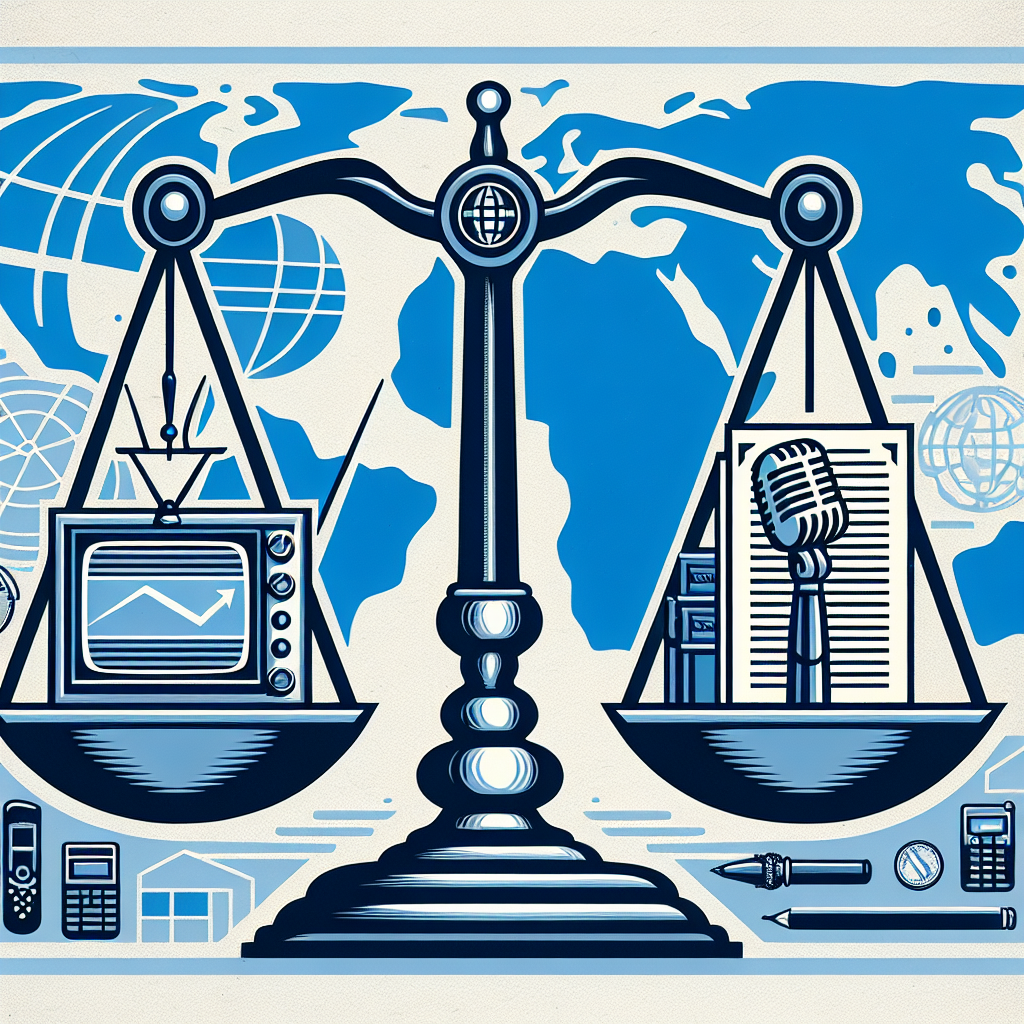
Exploring the Legalities of IPTV: What Consumers Need to Know
In recent years, IPTV (Internet Protocol Television) has become a popular alternative to traditional cable and satellite television services. With its wide range of channels and on-demand content, IPTV offers consumers more flexibility and control over their viewing experience. However, before diving into the world of IPTV, it is important for consumers to understand the legalities surrounding this technology.One of the main concerns surrounding IPTV is the issue of copyright infringement. Many IPTV services offer access to copyrighted content without proper authorization from the content owners. This can lead to legal implications for both the service providers and the consumers who use their services.
In some countries, watching IPTV content without the proper licensing or authorization can be considered illegal. Consumers who use IPTV services that offer pirated content may be at risk of facing legal action from copyright holders. It is important for consumers to be aware of the legality of the content they are accessing through IPTV services and to choose providers that have the proper licensing agreements in place.
Another legal consideration for consumers using IPTV services is the issue of geo-blocking. Some IPTV services may offer content that is only licensed for specific regions or countries. Attempting to access this content from outside of the authorized region may violate copyright laws and terms of service agreements. Consumers should be cautious when using IPTV services that offer content restricted to certain regions and should ensure they are not circumventing any geo-blocking measures.
Additionally, consumers should be aware of the legality of IPTV devices and applications. Some IPTV devices and applications may come pre-loaded with software that allows for the unauthorized streaming of copyrighted content. Using these devices or applications to access pirated content can result in legal consequences for consumers. It is important for consumers to only use IPTV devices and applications that are legal and legitimate.
To ensure they are using IPTV services and devices legally, consumers should look for providers that have the proper licensing agreements in place and offer content that is authorized for distribution. It is also important for consumers to read and understand the terms of service for the IPTV services they are using and to abide by any geo-blocking restrictions that may be in place.
In conclusion, while IPTV offers consumers a wide range of viewing options and flexibility, it is important for consumers to be aware of the legalities surrounding this technology. By choosing legitimate and licensed IPTV services and devices, consumers can enjoy the benefits of IPTV without running afoul of copyright laws and regulations. Being informed and responsible about the legalities of IPTV is essential for consumers looking to explore this popular television technology.
